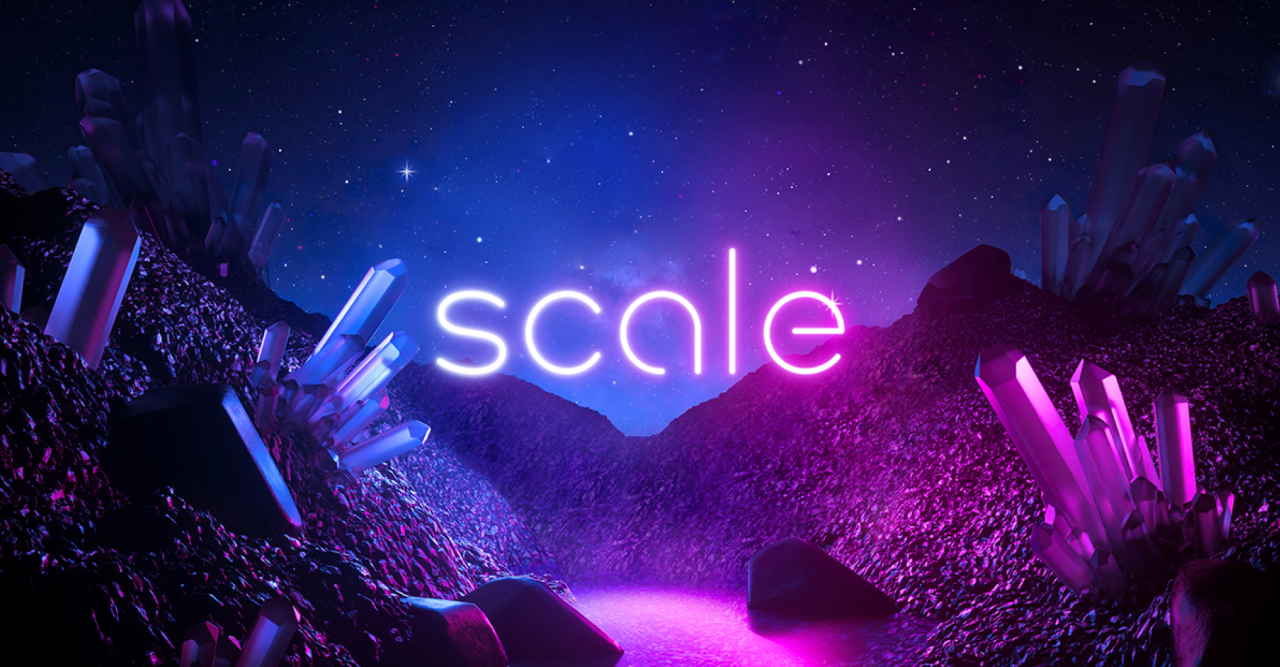Jolla release of its AI assistant, which operates on a personal server-based system, promising enhanced privacy and tailored experiences for users
Jolla has officially unveiled the initial iteration of its personal server-based artificial intelligence assistant. The resurrected startup is developing an AI device focused on privacy; revealed exclusively at MWC in February as the Jolla Mind2.
Monday’s live-streamed launch event also marked the beginning of preorders; the first units are expected to ship in Europe later this year.
Preorders on a global scale commence in June, with anticipated shipments occurring by the end of this year or the beginning of the following.
Since the initial 3D-printed prototype of Jolla’s AI-in-a-box was unveiled more than two months ago, other consumer-oriented AI devices, including the Rabbit R1 and Humane’s Ai Pin, have generated considerable buzz.
However, initial enthusiasm has diminished due to subpar or incomplete user experiences and the perception that emerging AI devices prioritize experimentation over practicality.
Jolla Mind2, an artificial intelligence device developed by a European startup, is intent on preventing this pitfall from occurring, according to CEO and co-founder Antti Saarnio.

They are proceeding “carefully” to avoid the potential pitfalls of making excessive commitments without fulfilling them.
Integration into our software is undoubtedly one of the most disruptive moments in the history of artificial intelligence.
It is an enormous disruption. In essence, however, the initial approaches were hurried, which proved to be the issue, “You ought to present operational software.”
Although the feedback is critical, it is reasonable considering the recent launches.
Saarnio reports that the development team intends to distribute a few hundred units (possibly up to 500) of the device to early adopters in Europe this autumn.
This will likely benefit the group of devotees that the company amassed around previous products, including its Sailfish mobile operating system.

Among the features unveiled were the email agent mentioned earlier, a document preview and summarization function, an electronic signature capability for documents, and what the company refers to as “knowledge bases” (more below).
While the productivity-oriented features demonstrated were operational, there were significant latency concerns.
Saarnio apologized, stating that demo gremlins that occurred earlier in the day were responsible for the last-minute performance issues.
During the demonstration of the chatbot interface, switching between agents was also performed manually; however, he stated that this would be automated in the final product via the AI’s semantic comprehension of user queries.
A calendar agent, a storage agent, a task management agent, a message agent (to integrate with third-party messaging apps), and a “coach agent”—which will access third-party activity/health tracking apps and devices to enable the user to query their quantified health data on the device—are among the AI agents that are in the works.
The product’s primary selling proposition is the assurance of private, on-device processing. Jolla maintains a strict stance on the security of user queries and data on the hardware under their ownership.
As opposed to, say, your confidential information being sucked into the cloud for commercial data mining and another party’s profit opportunity (as would occur, for instance, if you use OpenAI’ s ChatGPT).
Privacy is commendable; however, latency must be minimized to the greatest extent possible. This is crucial, considering that Jolla also targets the ‘prosumer’ use case of convenience and productivity.
Its primary strategic objective is safeguarding your data behind a firewall.
The primary selling point is that the device’s circa 3BN parameter AI model (referred to by Saarnio as a “small language model”) can connect to various third-party data sources.
This allows the user’s data to be utilized for additional processing and extensible functionality without requiring them to be concerned about the security or integrity of their data being compromised while harnessing the capabilities of artificial intelligence.
In situations where the local AI model of the Jolla Mind2 may not adequately address the query, the system will offer users the choice to transmit the query to third-party large language models (LLMs) “off-world.”
Users will be duly informed that this action exposes their data beyond the confines of a secure and private environment.
Jolla is considering implementing a color-coding communication system to indicate the degree of applicable data privacy (e.g., blue for complete device safety, red for a warning sign that a commercial AI has compromised your data, so all privacy expectations are off).
Saarnio verified that performance will be its foremost concern as the team refines the product. “Essentially, the adage goes, to achieve a breakthrough, something must be five times more effective than the existing solutions,” he explained.
Additionally, security will have to be an essential priority. It will establish a private VPN connection, among other capabilities, to enable secure communication between the hardware and the user’s mobile device or computer.
Saarnio further stated that user data stored on the box would be backed up to the cloud in an encrypted format, protecting it in the event of hardware malfunction or loss.
For users concerned with their privacy, the zero-knowledge encryption architecture they select to prevent unauthorized access to the data from the outside will be a crucial factor. These particulars are currently being determined.
AI hardware designed for a specific function?
An awkward inquiry has emerged as a significant critique directed at early AI devices such as Humane’s Ai Pin and the Rabbit R1: Couldn’t this be an application? It is a given that virtually everyone carries a smartphone.
This does not constitute an attack line against the Jolla Mind2. For starters, the box containing the AI is not designed to be mobile but relatively stationary and kept in a secure location, such as the office or residence.
Consequently, you will only be required to carry two substantial pieces of hardware a portion of the time.
Utilizing a conversational interface reminiscent of a chatbot, your mobile device (or desktop computer) is, in fact, the customary means of interacting with Jolla Mind2.

Another significant argument put forth by Saarnio in support of Jolla Mind2 as a device is that scaling an AI processing approach akin to that of a personal server in the cloud would be extremely difficult and costly.
“I believe that scaling cloud infrastructure would be seriously hampered by the requirement to operate local LLM for each user individually. It would require a cloud service to be continuously operational.
“Because restarting it could take approximately five minutes, it is impractical to use it in that manner,” he argued. “For instance, you might devise a solution that requires you to download it to your desktop, but it can also be utilized on your smartphone.”
Furthermore, this personal server represents the sole viable option for establishing a multi-device environment.
The knowledge base mentioned above is an additional form of AI agent functionality that enables the user to direct the device toward curated information repositories to enhance its functionality.
Saarnio presented a curated information deluge about the issue of deforestation in Africa.
After a knowledge base has been loaded onto the device, it becomes accessible for the user to inquire about, thereby augmenting the model’s capability to assist them in gaining a more profound comprehension of a specific subject.
“A user might inquire, ‘Hey, I’m interested in learning more about deforestation in Africa,'” he elaborated. “The AI agent then informs the user that one of our providers has compiled an external knowledge base.
Are you interested in establishing a connection to it? You can then initiate a conversation with this knowledge base. Additionally, one may request that it generate a summary, document, report, or similar work.
“We are contemplating the necessity of incorporating graded information into the internet,” he further stated.
“A knowledge base could be curated by a professor or thought leader specializing in a particular field, such as climate science; pertinent research papers could be uploaded for user access; and the user would be able to place some confidence in the evaluator of this information.”
If Jolla can successfully propel this, it has the potential to be quite intelligent.
LLMs tend to invent information and present fabricated blather as the absolute truth.
Therefore, in an ever-expanding landscape of AI-generated internet content, how can users ensure that the material they encounter is genuine information?
In response to this rapidly escalating knowledge crisis, the startup enables users to direct their preferred source or sources of truth to their own on-device AI model.
It is an amiably human-centered solution to the truth dilemma of big AI for agencies. Integrating small AI models with intelligently curated data sources may also result in a GenAI tool that is more environmentally sustainable than the one offered by Big AI, which is computationally, data-intensive and energy-hungry.
Jolla will require compiling valuable knowledge bases for this feature to function. It expects these to be curated and assessed by users and the broader community that supports its methodology.
Saarnio believes it is a reasonable request. He suggests that domain specialists can compile and share valuable research repositories easily.
An additional concern brought to light by Jolla Mind2 is the extent to which the software experiences of tech users are generally beyond their control.
It is not uncommon for user interfaces to be deliberately designed to be distracting, attention-hogging, or manipulative.
An additional benefit of the product is that it assists users in reclaiming control over their lives by eliminating annoyances such as dark patterns, grime, and notifications—essentially anything problematic with the numerous applications they are required to utilize. You can request that the AI filter out the racket.
Saarnio claims that the AI model can filter third-party content. As an illustration, users may request to see AI-related posts exclusively in their X feed without being subjected to additional content.
This equates to an instantaneous ability to influence what you consume digitally and what you refrain from.
“The overarching goal is to establish a harmonious digital workspace,” he stated.
Saarnio is more familiar than most with the difficulty of persuading consumers to purchase innovative devices, considering Jolla’s extensive history as an alternative smartphone manufacturer.
Not surprisingly, the group is also devising a strategy for B2B licensing.
He speculates that the startup may be able to sell “hundreds of thousands” or even millions of devices through partnerships in this area, where it saw the most incredible opportunity to scale the adoption of its AI device.
He acknowledges that sales within the Jolla community are unlikely to surpass several tens of thousands at most, consistent with the modest size of their devoted, enthusiast following.
The product’s AI component is being developed by a separate business entity known as Venho AI. This company, which also develops the software underlying the Jolla Mind2, will also provide licenses to other organizations desiring to market their versions of the personal server-plus-AI assistant model.
Saarnio proposes that telecommunications companies (telcos) may be a viable clientele for licensing the AI model, given that these infrastructure operators appear poised to be left behind once more as tech titans integrate generative AI into their platforms.
First things first, however. Jolla/Venho must deliver a high-quality AI product.
“Before the summer, we will begin discussions with distribution partners,” he continued, “we must first mature the software, test and develop with the community.”


